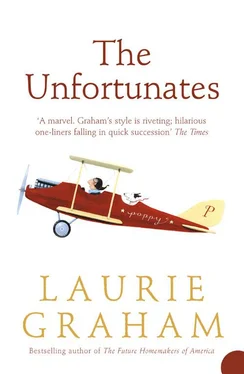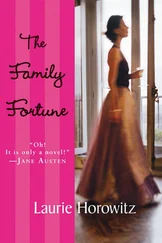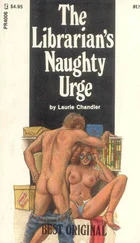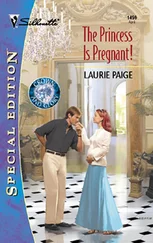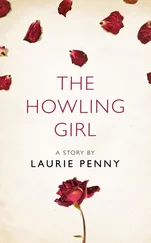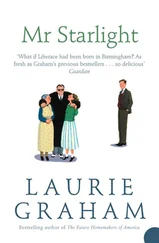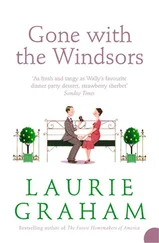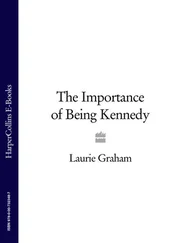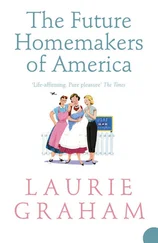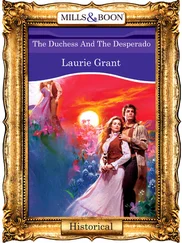1 ...6 7 8 10 11 12 ...19 As the Irish had been dismissed just days before for ferrying quantities of canned goods out of our pantry and home to her mother, carrying them away under her skirts, the final reckoning was that we were reduced to one housemaid, one parlor maid and a person who came in weekly to do mending and alterations. We faced social ruin and starvation, and all because of my headstrong expedition down amongst ‘the element’.
‘I hope,’ Ma said, ‘you are quite satisfied.’
But I wasn’t. On reflection, from the safe haven of West 76th Street, I decided I wanted more expeditions. I wanted to ride on trolley-cars, and maybe even on the elevated railway. I wanted to do good works amongst grateful people who admired my hair. I wanted to taste a cherry blintz.
But further visits to Delancey Street were unthinkable for a while. I was in trouble, and my disgrace was intensified by our having to dine every night with Aunt Fish and Uncle Israel until the first in a series of unsatisfactory replacements for Reilly began her duties. Even then it was many weeks before I sensed any let-up in my aunt’s watchful disapproval. In fact it wasn’t until November and the occasion of my seventeenth birthday that I felt I had finally been forgiven.
‘Getting to be quite the young lady, Pops,’ said Uncle Israel.
He and Aunt Fish gave me a sketch book and a metal box with little blocks of paint.
‘Watercolors. An elegant and suitable occupation for you, Poppy,’ explained Aunt Fish.
‘How kind,’ said Ma, ‘and how timely, now that you will be settling down to your duties at home.’
I heard a door slam shut on my career as a brave and beautiful benefactress.
From Ma I received a new writing case, and from Baby Sherman Ulysses a framed photograph. My best gifts though were from Honey who, in addition to a dreary manicure set, brought me a bag of scraps from her dressmaker, a bag with pieces of pale green crêpe de Chine and red taffeta and blue satin.
I hugged her.
‘Well,’ she said, ‘you are old enough now to stop chewing your nails, so I thought I’d encourage you. It’s time you took more care in your toilette.’
I said, ‘Why? We’re not looking for a husband anymore.’
Honey said that neat nails were an asset to anyone and Ma and Aunt Fish couldn’t have agreed with her more.
In a roundabout way I even received a gift from Reilly, who returned, on November fourteenth, and offered to give us just one more chance, thereby saving me from further nightly inspections at Aunt Fish’s dinner table.
I used my birthday scraps to make dolls’ clothes, as Honey had intended, and when the scraps were all gone, I used my paints to plan what I should like to make next. Shiny, slippery dresses, and pantaloons with beads and tassels, and big, bright coats that trailed behind like folded butterfly wings and flashed a lining of shot orange silk.
Ma said, ‘Wasting paint again, Poppy? How I should love you to make me a painting of trees and clouds. Just a small one. I’m sure there is no necessity to splash the paint about so.’
I was allowed to resume my weekly visits to Honey’s house, too, once we could be certain fleas were the only bad thing I’d brought home from Stanton Street. I’d go for a whole afternoon, and look through Honey’s closets and try on her hats and shawls and bang about until I woke Sherman Ulysses. He always seemed very pleased to see me, and he was quite advanced, for a Glaser.
‘Honey,’ I said one time, ‘you know how I have to stay with Ma now and be her help and comfort? Well, what will I do when Ma is dead?’
‘Gracious, Pops,’ she said, ‘that won’t be for years. Thirty years maybe.’
‘No, but still,’ I said, ‘what will I do then?’
‘You’ll live with me and Harry,’ she said.
That was the day I decided to write to Cousin Addie in Duluth.
‘Dear Cousin Addie,’ I wrote.
I am your Uncle Abe Minkel’s girl. We have never met, but I am an old maid like you. I hope we can be correspondents. What are your dolls’ names? I make very good dolls’ clothes which I could send you some time. I would certainly be willing to visit Duluth some day.
I never mailed it. Before I could work out a secret way to discover her address and to receive her replies without interference from Ma, I was distracted by new thrills and skirmishes. A war had begun in Europe.
President Wilson told us that the United States of America must be seen to be impartial in thought, word and deed, but the Prussians cared nothing for that, so we were preparing for invasion. Quantities of canned goods were brought in and a lock, to which only Ma held a key, was fitted to the pantry door. This reawakened Reilly’s dormant desire to flounce out and leave us in the lurch again, and threats were exchanged. Only the news, flashed to us from Harry’s office, that a German submarine had been sighted in Long Island Sound, pulled Reilly back into line.
‘Well?’ Ma said, with the confidence of a player who is holding a royal flush. ‘The Hun is at the door. Are you staying or leaving?’
Reilly returned below stairs, but as long as Ma kept up the locked pantry regime, Reilly exacted her own small satisfactions.
‘Asparagus tips, if it’s not too much trouble.’ Her voice would erupt from the speaking tube, like an Upper Bay foghorn, and quite destroy the gentility of Ma’s parlor.
It turned out there had been no submarine. But something else was menacing us, as I should have guessed from conversations between Ma and Honey which always ended abruptly as I came into the room. Then a meeting was convened, for Sunday afternoon. Honey and Harry were to attend and the Aunt and Uncle Israel Fishes, and tea and seed cake would be served.
I said, ‘I’ll take Sherman Ulysses for a walk in his bassinet.’
Seed cake was my least favorite.
‘No, Poppy,’ Ma said. ‘This concerns even you.’
We were assembled to discuss the question of German connections.
Harry said, ‘Weiner, Ittelman, Schwab, they’ve all stopped speaking German, even behind closed doors.’
Ma said, ‘I’m sure I wouldn’t know German if I heard it. Abe never used it. Nor his father.’
I said, ‘Are we Germans, then?’
‘Of course not, you foolish girl,’ Ma and Aunt Fish chorused.
‘It’s a question of appearances,’ Harry went on. He stood up and stroked his moustaches and rocked on his heels as he spoke. I suppose this helped him to feel less of a nonentity.
‘We all know we’re not Germans,’ he said. ‘We certainly don’t behave like Germans. But we have to face facts. Every name tells a story and as patriotic Americans we’d be fools not to free ourselves of any taint. A change of name. That’s all it takes. We’re changing to Grace. A good old American name.’
‘Don’t see the need,’ Uncle Israel said. ‘I recall when your father changed from Glassman to Glaser. Seems to me that was change enough.’
‘You’re wrong, Israel,’ Harry said. ‘You’d be surprised what little things folk pick up on. I have to do this, for my boy’s sake.’
Aunt Fish agreed with Harry and had quite set her heart on becoming a Fairbanks, but Uncle Israel would have none of it.
‘Question,’ he challenged her. ‘What is a herring? What is a carp? What is a turbot? I’ll tell you. They are fish. F-I-S-H. A good plain American word. I rest my case.’
Meanwhile Ma was eyeing me nervously. As well she might.
‘We were thinking of Mink,’ she said, ‘but as Harry pointed out, even Mink has a ring to it. So I have settled upon Minton. A very elegant, English name that will serve us well. Poppy Minton! How pretty it sounds. I believe it suits you better than Minkel any day.’
Читать дальше
